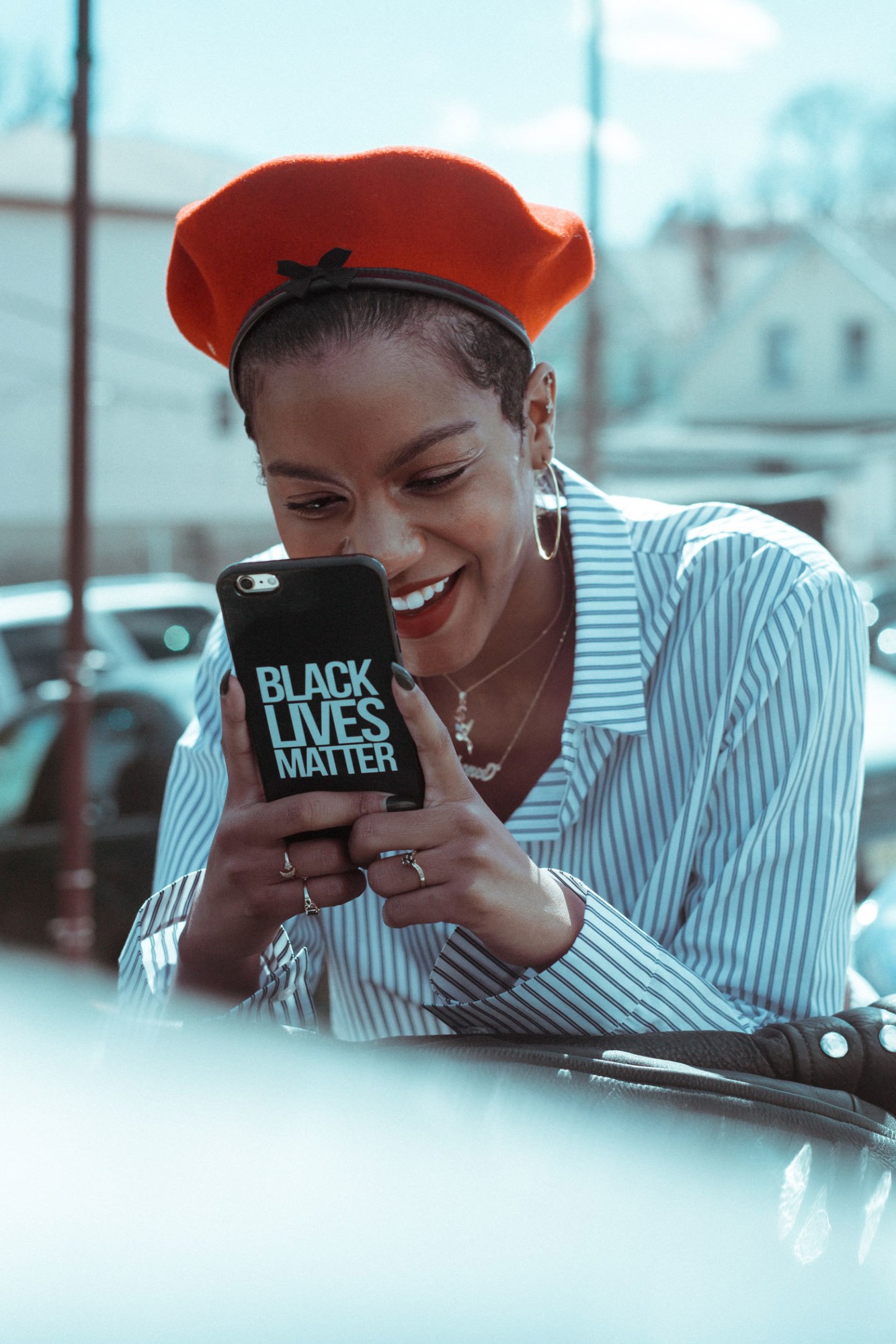This article was originally published by i-D UK
The Seattle-born Calvin Klein model asks what effect living our lives for the approval of others will ultimately have on our self worth and individual identity. By carefully curating these homogenous online personas, we risk losing what we truly have – our selves.
At a party last week I was approached by a young man with a fairly large social media following – I’m talking hundred of thousands of followers – who asked for a photo with me. Although I thought it was a bit strange of him to ask for a photo without introducing himself first, I agreed. Moments after taking the photo, I watched him scurry away to post it. In that moment, I realised just how easy it is to create the illusion of friendship through social media. Whoever sees that photo might think we’ve known each other for years, or that we know each other’s names and have shared a few words, at the very least. This encounter we shared was not the first of its kind and it has made me wonder how social media is affecting our relationships — the relationships we have with each other and the relationship we have with ourselves. Social media has changed the way we network, the way we interact with each other, and the distance between us. However Instagram has also negatively affected our mental health more than any other social network.
During my years as an Instagram user, I’ve felt a silent insistence to conform to a certain standard of beauty, fashion and fitness, and it has become increasingly intense and apparent as Instagram’s community continues to grow. For most, fitting into the narrow margin of mainstream beauty is impossible, and they are suffering under the pressure to. This cycle of low self-esteem is further perpetuated as many look to social media for validation — placing their entire idea of self worth within a rating system based on likes, comments and followers. Comparing ourselves is now easier than ever with the internet constantly at our fingertips. Subsequently, we are in a position of continuously judging ourselves and others, making it exponentially harder to be authentic. When it comes down to it, most of us are living in constant fear of being judged for who we are. This fear has made conformity the norm and authenticity elusive.
Mental health risks aren’t the only consequence of living in a generation ruled by social media. On castings, I am often asked how many followers I have on social media and many clients cast models with high social media followings, even if other models are more qualified for the job. This method of hiring has created an incentive for models to capitalise on certain friendships and portray themselves in a way that is most appealing to the industry. We are inadvertently asked to compromise our authenticity at the risk of losing our livelihood. There was even a time when I refrained from posting certain pictures and only posted ones that supported the narrative I adopted for who I should be, based on the approval of my followers and my clients. Culturally, we are becoming dangerously homogeneous; afraid of expressing our individuality and living our lives for the approval of others.
The rise of social media has also given way to the pervasive issue of cyber-bullying. Social media has granted its users the power to anonymously attack and criticise one another ruthlessly and without repercussion. Sure, features like the “block” button do exist, but it cannot assuage the irreparable psychological damage many are left with following a cyber bully attack. It is especially visible on celebrity profiles. Society places famous people on a pedestal, believing that their lives are somehow of greater importance or more perfect than our own. Yet we place them under tremendous scrutiny, especially when they fall short of our expectations. Why do we demand perfection from celebrities and why do we demand it from one another? We are repressing and condensing our lives into tiny perfectly packaged boxes based on the notion that we are not good enough as we are. We live in an imperfect world yet we feel as though we have to be perfect on social media. How do we interact with one another when Instagram has left very little room for mistakes, for vulnerability, for imperfections – for humanity?
By perpetuating the false lives we share with the world through carefully curated photos, we have created an alternate reality where only the most ideal and palatable versions of ourselves can exist. For many, escaping this world has become an impossibility. How well we curate ourselves on this virtual platform has built itself into the way we date, who we befriend, who we hire for jobs, and it’s changed how we see others and how we see ourselves. So how do we change? First, we have to admit that we are not being ourselves; we have to detach from our public personas. We have to admit we’ve been living within the confines of other people’s expectations, ruled by fear of judgement. We have to stop comparing lives and realise how our judgements affect one another. Let’s ask ourselves why we are so quick to tear each other down. Let’s stop making one another feel unsafe and afraid to be who we are. Let’s acknowledge and celebrate all various forms of beauty and self-expression. Let’s reclaim our humanity through love and respect for ourselves and others and by unabashedly and unapologetically be ourselves. Let’s get free. We are so much more than the tiny boxes we are trying to squeeze into.
Credits
Text Ebonee Davis
Photography Kofi Dua
